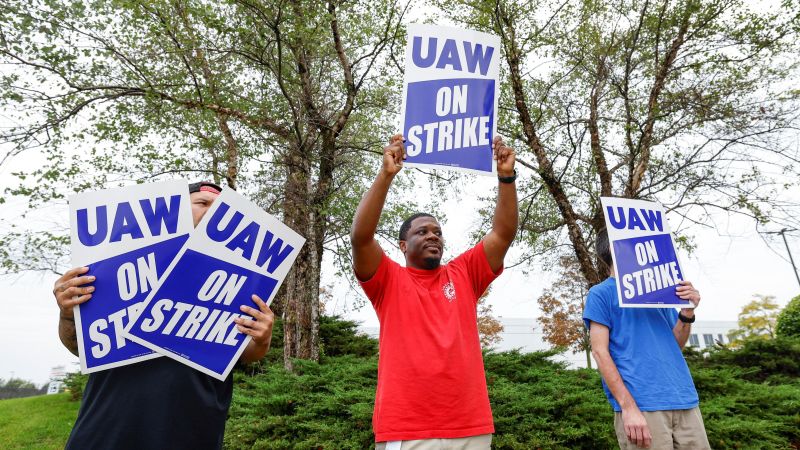The United Auto Workers union has reached a tentative agreement with Stellantis, which makes vehicles under the Dodge, Ram, Chrysler and Jeep brands, a source familiar with the negotiations told CNN.
Although union negotiators and the automaker have a deal, it still needs to be presented to and signed off by union leadership before it is announced. That could happen later Saturday.
The tentative agreement with Stellantis Saturday follows a similar deal reached with Ford Wednesday. Neither is official, as they both need to be ratified by a vote of rank-and-file UAW members at the companies before they will take effect.
The terms of the agreement with Stellantis were not yet known. Both Stellantis and the union declined to comment.
The source also said that negotiators are close to a tentative agreement with General Motors. The union and GM declined to comment on their negotiations.
The Ford deal will give members an immediate 11% raise upon ratification, and additional increases that will provide workers a total of 25 percentage points of pay hikes by the time the contract expires in early 2028. In addition, workers will have a return of cost-of-living adjustments made to their hourly pay rate to protect them against price increases.
The automakers typically offer union members similar deals across companies, so the Stellantis and GM negotiations are expected to yield similar benefits for the autoworkers.
If the agreements are reached, it would likely put an end to the longest autoworkers strike in 25 years.
The ratification process at Ford is due to start Sunday with a meeting in Detroit of local union officials who represent Ford workers around the country. While the deal includes record gains for the union, with double-digit pay increases, ratification is not certain.
When the cost-of-living adjustments and guaranteed raises are combined, they are expected to raise Ford workers’ wages 30% or more. There will be even bigger pay increases for workers now in a lower pay tier, for temporary workers and for starting pay.
The union has also won improved pension benefits for senior workers who have a traditional pension plan, and increased company contributions to 401 (k) accounts of workers hired since 2007. But the union did not get its goal of a resumption of traditional pension plans for those post-2007 hires, or for a return of retiree health care coverage.
This is a developing story. It will be updated.
Read the full article here
